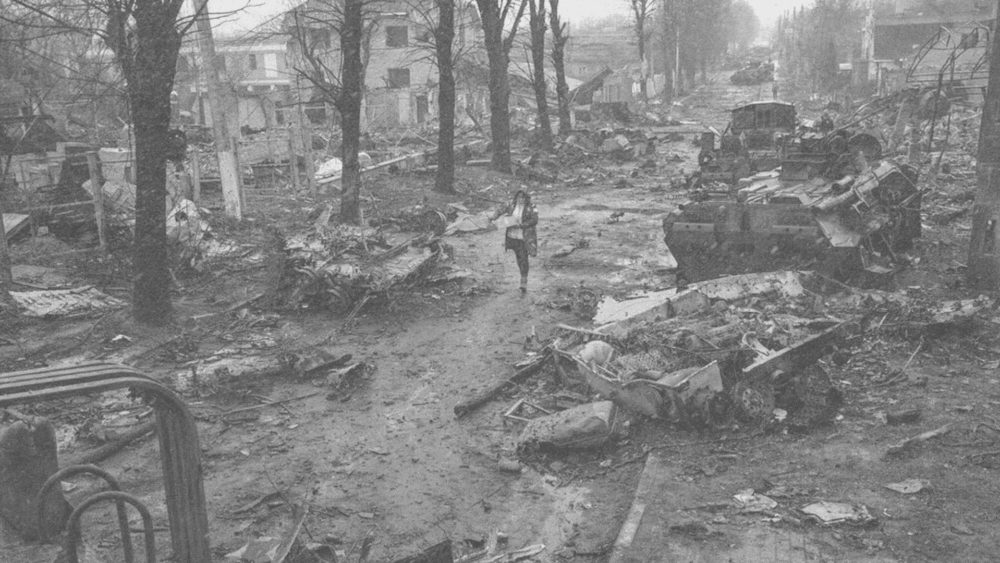It is a year to the day since Russian forces launched their offensive on Ukraine, and there is seemingly no end in sight to this conflict.
Any suggestion of a peace plan in Western mainstream circles is frowned upon, even labelled as Russian propaganda, with the recent Davos Forum seeing western leaders salivating at the prospect of an endless stream of weapons being sent to Ukraine as opposed to discussing a resolution.
DiEM25, on the other hand, unapologetically wants to see peace. We recently held a livestream discussion on the matter of how this could be achieved in Ukraine, where opinions and suggestions were shared.
Our co-founder Yanis Varoufakis kicked off the discussion by recounting what DiEM25 proposed as a viable solution to bring an end to the conflict.
“The war in Ukraine is doing to the left what the first World War did to the left back then in 1911. You recall that the German left was destroyed as a result of the division between the left that became gung-ho and wanted to join the war effort of the Prussian government and the left that turned against the war,” Varoufakis began.
“Coming back to our times, soon after the beginning of war in February, DiEM25 put out a detailed idea of a peace plan that we think would be an appropriate resolution for the conflict. We voted in favour of this peace plan.
“It is based on some very basic principles – first the return of the Russian troops to where they were on the 24th of February.
“Secondly, a peace treaty under the auspices of the United Nations that guarantees the neutrality, not disarmament, of Ukraine, [and] gives guarantees to Russia of that neutrality, and gives Ukraine guarantees of Russian non-incursion of the pre-February 24 borders. A process of civilising the contested areas in the Donbas where we know there were massacres well before 2022, before even 2014, there have been massacres of Russian speakers by Ukrainian speakers and massacres of Ukrainian speakers by Russian speakers.
“[It is] a quagmire which to me at least resembles the troubles in Northern Ireland, which is why DiEM25 proposed a Good Friday-like agreement, based on de-facto joint-sovereignty – remember in Northern Ireland both Dublin and London had sovereignty over the peace process and both communities have veto powers, and in every ministry there are representatives of both communities.
“That kind of solution was envisaged by DiEM25 regarding the Donbas area – it was the most palatable peace process proposed by anyone.”
Policy director Erik Edman then shared an interesting perspective on the nuances between justice and peace.
“This split between justice and peace is very problematic for the pro-peace position – on the one hand you have countries like Germany and Italy who are positioning themselves as pro-peace – as societies, not governments. Then on the other side of the spectrum you’ve got Poland and countries of the Baltic,” Edman stated.
“But what I want to focus on is this division between justice and peace, because when the debate is framed along these lines, it makes peace sound cynical – that’s problematic.
“To define it better, those on the peace camp say the number one priority is to have peace in Ukraine. And those in the justice camp say there can only be peace if we have justice – so the war can only end if Ukraine can win the war.
“This polarisation is creating a new political situation in Europe where you see weird phenomena such as the Greens in Germany being something like 70 percent in favour of sending more weapons to Ukraine with a voter base that is predominantly young, urban, women… supporting this position.
“And on the other end of the spectrum in Germany you have the AfD, the far right, who have produced some of the best anti-war speeches that the Bundestag has seen in recent months, regardless of their abhorrent political ideology on other matters.
“So the situation has shifted, the political debate has shifted, and the audience isn’t as clear cut as it used to be on matters of war and peace – you have these new cleavages and different groups sort of overlapping with each other.
“So in order to properly tackle this matter and for us to speak to a broader audience than we currently are with the pro-peace message, I think it’s very important for us to start discussing how peace also means justice, for Ukraine and the broader region.”
Watch the full discussion below
Do you want to be informed of DiEM25's actions? Sign up here















